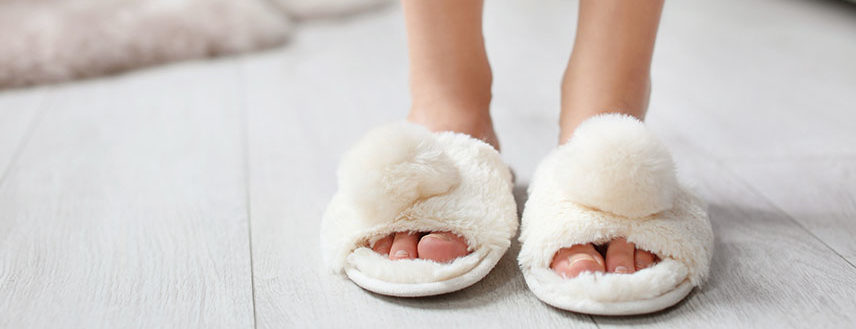
The cold weather is here and while you may be bundling up and keeping yourself warm, there is a part of your body that should not be forgotten – your feet. During those months when you’re not often barefoot or wearing sandals, it can be easy to neglect your feet. However, this can put your feet at risk for infection. Try these tips for healthy winter feet:
- Wash and Exfoliate – Your feet tend to become dry and rough during the winter months. Keeping them clean and exfoliated is essential. The most important reason for cleanliness is to avoid getting an ingrown toenail or fungus. It is also important to take the time to dry your feet thoroughly. To remove dead skin cells, impurities and roughness, scrub your feet with a good pumice stone. The stone can scrape off callouses and the hard surface of your heels and can keep your feet soft smooth and soft.
- Keep Feet Moisturized – Winter air tends to dry out skin and this can cause callus build-up in your feet. Your skin can then crack and bleed, allowing bacteria in. If you are diabetic or have poor circulation, you are at an increased risk for infections of the foot because of slowed healing time. Include a daily moisturizer in the winter to keep skin supple and smooth. For best results, apply at night and cover with socks overnight while sleeping.
- Don’t Neglect Nails – The delicate cuticle area on your feet protects the nails from bacteria, so it’s important to keep it from getting damaged. Massage a cuticle oil into the skin any time your cuticles are getting dehydrated. Winter is also a good time to skip nail polish. Going polish-free allows the nails to better soak up moisturizers and lotions, and not using polish remover for extended periods of time will help fight against nail dryness.
- Keep Feet Warm – During the cold winter season, you need to keep your feet warm and dry. It is wise to wear socks made of moisture-wicking material. Extra moisture can cause the skin to cool down more quickly and potentially lead to frostbite. One of the most common causes of cold feet is nerve damage, known as neuropathy. In this case, you may feel a cold sensation because the nerves that detect temperature are not working correctly. The feet do not feel cold to the touch, although you may feel numbness or pins-and-needles.

